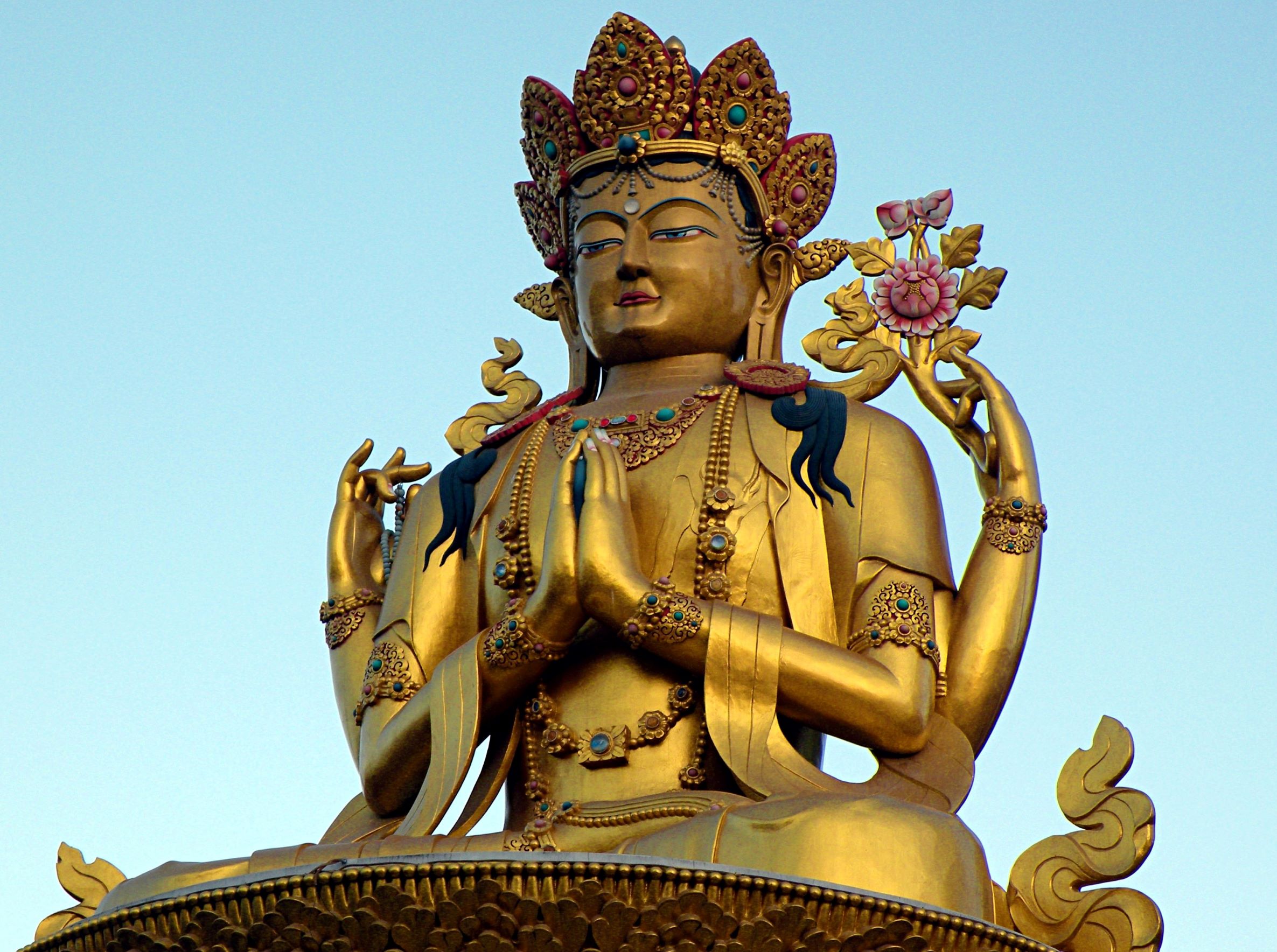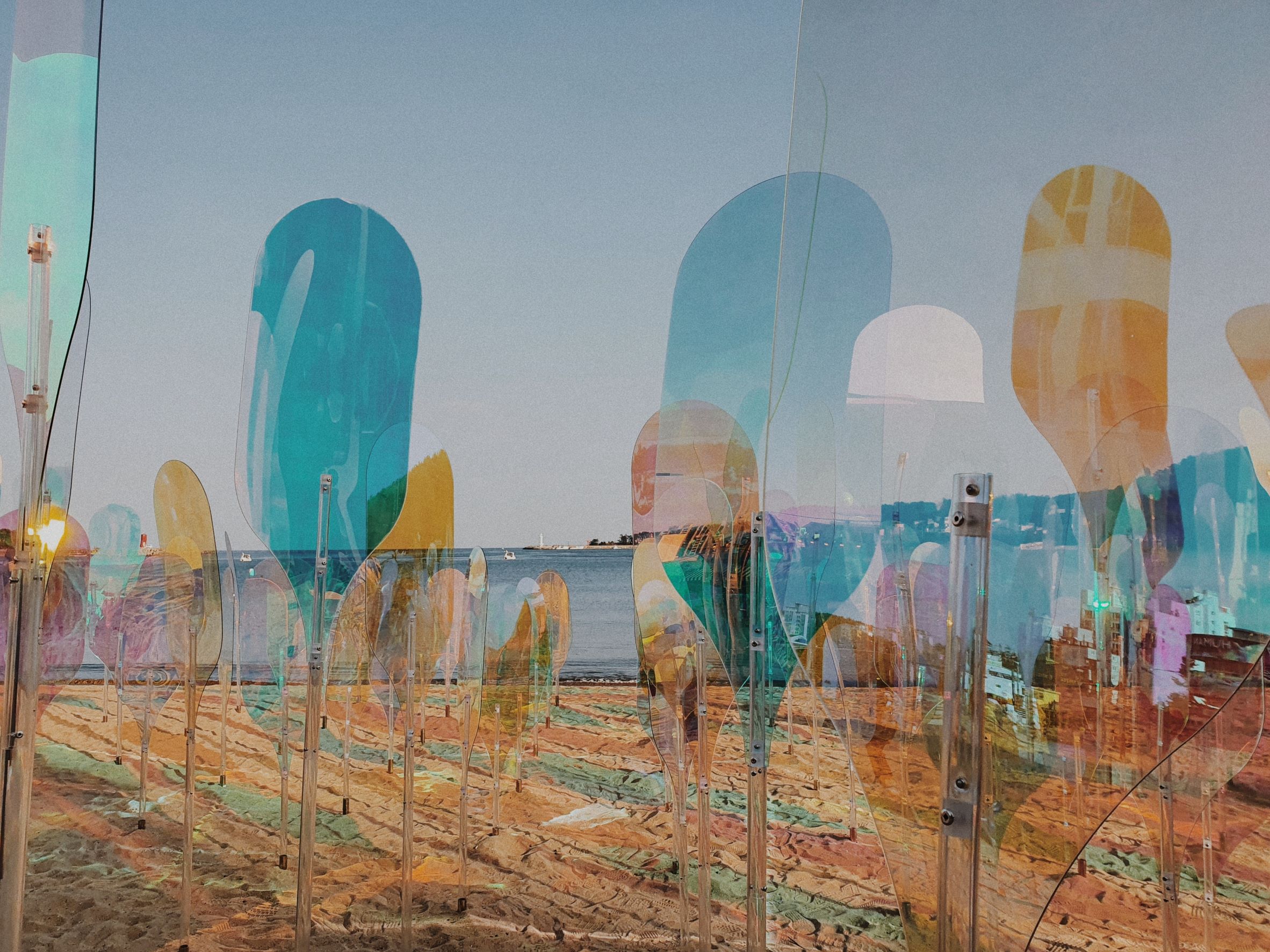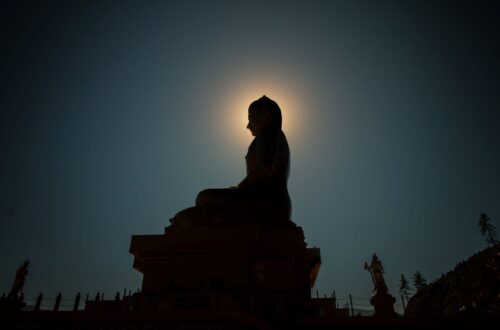
Death and the Pure Mind
While watching a video on The Tibetan Book of the Dead, Andrew Holecek, the instructor, showed us a diagram of the Bardo states.
Six Bardos and Three Bodies
Bardos in Tibetan Buddhism are intermediate states. There are six of them. They are: this waking life, death, after death states, and the preparation for rebirth. There are two others that occur during our waking life, one is our dream world at night, and the last is the deep states of consciousness we reach in meditation.
Tibetan Buddhists also believe we have three bodies: a gross physical body that houses our ego, a subtle inner body, and a very subtle body that is our unconditioned or pure mind. As we go through the dying process we shed first our gross body and then our subtle body, leaving only our unconditioned mind as our pure state of being.
Death is All About Shedding Our Conditioning
The interesting thing about the dying process is that it strips away all of our conditioning. First, it strips away the conditioning from our outer or gross body, and then from our inner or subtle body to reach our pure mind.
The Tibetan Buddhists believe that the more conditioning we can get rid of while alive, the better our death will be. If we haven’t examined our conditioning, then at the moment of death we will contract when our unconscious mind empties and all those repressed and rejected experiences come at us with full force.
What we want is not an unconscious death, but a conscious one where we have emptied our unconscious mind and know who we are. If we can do this, then the Tibetan Buddhists say nothing happens at death. It’s no big deal.
This should lead us to want to examine our conditioning in order to have a better death.
If we have lived our lives unconsciously, focusing mainly on our outer physical body and the world, never examining our conditioning from our parents, culture, family, friends, etc., then as that conditioning gets exposed in the dying process, death will be a very difficult experience.
To Prepare for Death Start Shedding Conditioning While Alive
However, according to The Tibetan Book of the Dead, the more we work through our conditioning while alive, the easier our death will be. We need to turn our focus from our outer gross body to our inner subtle body. People with less conditioned minds look forward to the dying process because they get to experience pure mind, thus enlightenment.
If, however, we are not prepared for death, we move on to an involuntary rebirth in a new life to continue working off our karma.
If, as Andrew Holecek says through his studies, we are able to handle our unconditioned mind, then we can have a voluntary rebirth where we can consciously create our next life.
Quotes About Death
Some of the quotes Holecek uses about death are:
“Death is slamming into yourself.”
“If you die before you die, then when you die, you don’t die.”
“Death is the final exam with one question: Who am I?
“If you find your Self now, you won’t lose it in death.”
He means, if while we are alive we have already realized our unconditioned mind, then when we die, it will be nothing new. It’s like the advanced yogis who when given powerful psychedelic drugs don’t notice any change in their consciousness. They are already residing in the place where the drug is taking them.
So, it is important to prepare for death while we are alive. It’s a good reason to start examining ourselves to see where our conditioning lies and begin to shed it.
To do that, we can’t run away from unpleasant experiences or nasty feelings, but instead must work through them and see what gems that have to teach us.
What I most got out of reading The Tibetan Book of the Dead and taking several courses, is that it is better to work through our stuff while alive, then when we are dead.
Why It’s Easier to Face Conditioning While Alive than Dead
When you are alive you can approach your stuff more gradually, taking time to process uncomfortable states of consciousness. If some feelings are particularly harsh, we can back off and come back to them later, taking them on piece by piece.
If we wait until we die, then it hits us full force, leaving us defenseless to handle the onslaught.
It reminds me of Huston Smith describing the concept of karma in Hinduism
He likened our soul to a bright lantern where flecks of dirt, the result of our karmic actions, begin to stick to the lantern slowly blocking out its light. As the flecks continue to accumulate, eventually they will cover the entire lantern, blocking out all its light.
That is the perfect metaphor for us here. Most of us have lanterns (souls) that have been layered over with dirt (karma), blocking contact with our pure self.
However, as we pursue our spiritual path and confront our karmic debts, we begin to clear away some of that dirt. If we continue at it, more and more of the light will show through.
Those able to do this will get a taste of pure soul. For a few moments we can soar above our conditioning and become our unconditioned self.
Unfortunately, we can’t stay there for long and must come tumbling back down into our conditioned selves.
But just that journey and experience of our unconditioned self can become enough to light a fire in our souls that says we want more of that.
Death is About Discovering Who We Are
In short, we want that deep experience of knowing who we are.
Over time, as we uncover our unconditioned self, the conditioned ego becomes harder and harder to bear.
Even though we know better, we still can find ourselves acting in petty ways, saying childish vindictive things. We can’t stop ourselves and this can lead to a lot of self-loathing. We get angry at ourselves for not being able to control our thoughts and feelings. It’s very frustrating, but we must have patience. Rome wasn’t built in a day.
If we keep at it, we will have another breakthrough and rise above all that crap, and once again get a taste of our unconditioned mind. We understand that realizing ourselves in the moment is realizing ourselves.
The more we practice this, the more we can cultivate these breakthrough experiences.
So, the journey to the unconditioned or pure mind begins while we are alive. It has a two-fold purpose. First, it allows us to experience the joy of being who we really are, while at the same time preparing us for death. Second, it is also the journey we must take if we want to save the planet from the ravages of our conditioned egos.
Studying The Tibetan Book of the Dead is a great motivator for spiritual advancement. Either we deal with our crap now or we deal with it later. There is no escape.
As Socrates counseled, “Know thyself”.
Stay tuned. There will be more columns on the Tibetan Book of the Dead for those interested.
To learn more: Click this link: The Magical Universe.
Photo by Xion Design Studio on Unsplash




